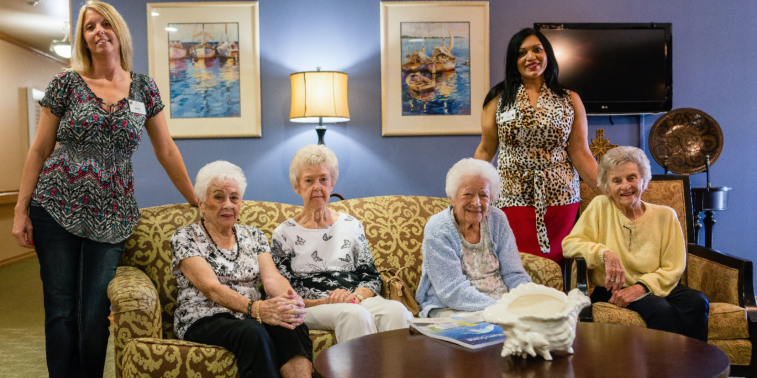Customized Dementia Care Charlotte: Comprehending Your Loved One's One-of-a-kind Requirements
Customized Dementia Care Charlotte: Comprehending Your Loved One's One-of-a-kind Requirements
Blog Article
Just How to Supply Individualized and meaningful Dementia Care
The stipulation of customized and purposeful dementia care calls for a nuanced understanding of each person's special background and choices. Care approaches need to be customized to involve the person in means that reverberate with their past experiences, consequently cultivating emotional connections and boosting overall well-being.
Understanding Dementia Individuality

Care providers need to analyze cognitive abilities, emotions, and behavior patterns to develop personalized care strategies. This may include adjusting interaction designs, using acquainted routines, and using significant activities that resonate with the individual's previous experiences. Involving an individual with an enthusiasm for music through musical tasks might stimulate favorable memories and boost psychological wellness.
Additionally, recognizing originality promotes a compassionate strategy that appreciates the dignity and autonomy of those dealing with dementia. It urges caretakers to listen actively, observe behavioral cues, and continue to be adaptable in their caregiving approaches (charlotte care home). By focusing on individuality, caretakers can not just improve the quality of life for those with mental deterioration but likewise develop a more extensive understanding of their distinct viewpoints, inevitably resulting in more efficient and compassionate treatment
Structure Trust Fund and Connection
Establishing trust fund and relationship is fundamental in dementia treatment, as it produces a risk-free and encouraging environment for people impacted by the problem. Structure these links needs consistent, caring interactions that prioritize the needs and feelings of the person. Caregivers need to come close to interactions with empathy, identifying the distinct challenges faced by those with dementia, including amnesia, confusion, and psychological distress.
Caretakers ought to make use of clear, straightforward language and non-verbal hints to convey understanding and assistance. Active paying attention shows regard and validation, enabling individuals to express themselves without concern of judgment.
Knowledge with day-to-day tasks and caretakers promotes a sense of security, enabling individuals to really feel more at simplicity. By doing so, caretakers strengthen the person's identity, promoting self-respect and respect, eventually leading to more powerful, a lot more significant relationships in the context of dementia treatment.
Tailoring Tasks and Involvement
Engaging people with mental deterioration through customized tasks can significantly improve their quality of life and foster a deeper connection in between caretakers and those in their treatment. Customization is essential, as it acknowledges the special histories, rate of interests, and abilities of each person. Tasks need to be created to promote cognitive functions, advertise physical motion, and urge social interaction, all while continuing to be delightful and satisfying.
To customize activities properly, it is critical to evaluate the individual's preferences and cognitive abilities. Furthermore, incorporating elements of routine can use convenience and stability, allowing individuals look at this now to involve with activities much more confidently.
Caregivers can enhance involvement by getting involved together with the individuals, cultivating an interactive and helpful atmosphere. It is also vital to remain versatile and adaptive, readjusting activities as needed based on the individual's energy degrees and mood. Inevitably, significant engagement via tailored activities not just uplifts people with dementia but likewise improves the caretaker partnership, advertising mutual pleasure and understanding.
Effective Communication Strategies
Efficient interaction is important in dementia care, as it promotes a feeling of link and understanding between individuals and caregivers experiencing cognitive decrease. Employing efficient communication strategies can considerably enhance the quality of communications and reduce frustration for both parties.
First of all, utilizing easy, clear language is necessary. Short sentences and familiar words help people comprehend and respond better. Additionally, preserving a calmness and positive tone can create an encouraging environment, which is critical for individuals that might really feel nervous or baffled.
Non-verbal interaction plays a considerable function. Caretakers should pay focus to body movement, face expressions, and motions, as these cues can often share more than words - memory care charlotte. Establishing eye call and utilizing mild touch can also share and strengthen connections empathy
Energetic listening is an additional essential element. Caregivers ought to listen, enabling people to express themselves fully, also if their speech is unclear great site or fragmented. This lionizes and urges a lot more open communication.
Lastly, validating experiences and feelings is vital. Recognizing emotions, no matter their basis in truth, can offer comfort and reinforce the caregiver-individual connection, promoting an extra helpful ambience.
Sustaining Household Participation
Family members participation plays a considerable duty in the general care and support of people with dementia. Involving family participants produces a joint atmosphere that boosts the quality of care, cultivates psychological connections, and makes certain that the distinct demands of the individual are fulfilled. Household participants usually possess very useful understandings right into the individual's background, choices, and actions, which can be important in establishing customized treatment strategies.

Furthermore, family participants can be encouraged to take part in day-to-day care tasks, such as participating in meaningful conversations or assisting with familiar routines. This not just helps receive the person's feeling of identification however likewise strengthens familial bonds. Ultimately, by promoting an inclusive technique that values family payments, treatment providers can improve the general experience for both individuals with dementia and their loved ones.
Final Thought
In verdict, providing purposeful and customized mental deterioration care requires a have a peek at this site thorough understanding of each person's distinct background and preferences. Collectively, these approaches contribute to improved high quality of life for individuals with dementia.
The arrangement of purposeful and personalized mental deterioration care requires a nuanced understanding of each individual's unique background and preferences. By doing so, caregivers strengthen the person's identification, promoting self-respect and regard, ultimately leading to stronger, much more significant connections in the context of dementia care.
Involving people with dementia via customized tasks can dramatically boost their top quality of life and cultivate a much deeper link in between caretakers and those in their care.Family involvement plays a considerable function in the overall treatment and support of people with dementia. Inevitably, by fostering an inclusive strategy that values family payments, care service providers can boost the overall experience for both people with dementia and their enjoyed ones.
Report this page